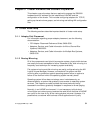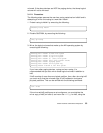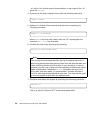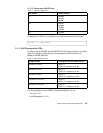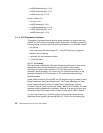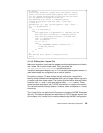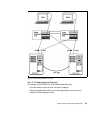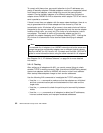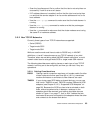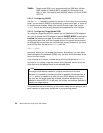58 IBM Certification Study Guide AIX HACMP
3.1.4.3 Editing the /etc/hosts File and Nameserver Configuration
Make sure all nodes can resolve all cluster addresses. See the chapter on
planning TCP/IP networks (the section Using HACMP with NIS and DNS) in
the
HACMP for AIX, Version 4.3: Planning Guide, SC23-4277
for more
information on name serving and HACMP.
Edit the /etc/hosts file (and the /etc/resolv.conf file, if using the nameserver
configuration) on each node in the cluster to make sure the IP addresses of
all clustered interfaces are listed.
For each boot address, make an entry similar to the following:
100.100.50.200 crab_boot
Also, make sure that the /etc/hosts file on each node has the following entry:
127.0.0.1 loopback localhost
3.1.4.4 cron and NIS Considerations
If your HACMP cluster nodes use NIS services, which include the mapping of
the /etc/passwd file, and IPAT is enabled, users that are known only in the
NIS-managed version of the /etc/passwd file will not be able to create
crontabs. This is because cron is started with the /etc/inittab file with run level
2 (for example, when the system is booted), but ypbind is started in the
course of starting HACMP with the
rcnfs entry in /etc/inittab. When IPAT is
enabled in HACMP, the run level of the
rcnfs entry is changed to -a and run
with the
telinit -a command by HACMP.
In order to let those NIS-managed users create crontabs, you can do one of
the following:
• Change the run level of the
cron entry in /etc/inittab to -a and make sure
it is positioned after the
rcnfs entry in /etc/inittab. This solution is
recommended if it is acceptable to start cron after HACMP has started.
• Add an entry to the /etc/inittab file like the following script with run level
-a.
Make sure it is positioned after the
rcnfs entry in /etc/inittab. The important
thing is to kill the cron process, which will respawn and know about all of
the NIS-managed users. Whether or not you log the fact that cron has
been refreshed is optional.




